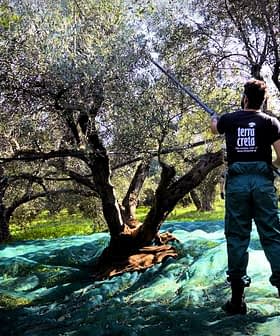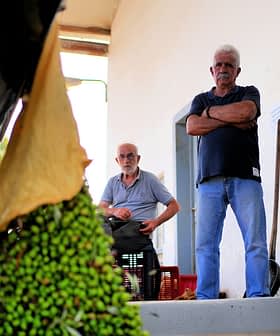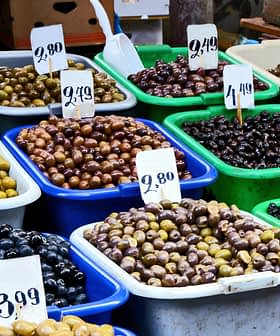Greeks Stock Up on Staples Before Tax Increase
Taxes in Greece will increase on January 1st on basic products such as tobacco, coffee and olive oil. Locals and traders are stocking up before the higher costs take effect.
 Ermou Street, Athens
Ermou Street, AthensThe Greek economy is facing challenges with VAT increases on essential products like olive oil, leading to a rush by consumers to stock up before the tax hike takes effect. The new taxes are causing concern among professionals in various sectors, including fears of a drop in sales to tourists and a potential decrease in overall consumption, making the economic outlook for 2017 uncertain.
The economy in Greece is still stuck on the difficult side. With taxes on olive oil rising from 9 percent to 13 percent tomorrow, many Greeks are rushing to buy and stock up on the staple among other products. Every hour counts, especially for those in the trade who have boosted their stocks in the past few weeks.
“Some people are hoping to make stocks for six months,” said Giorgos Kourasis, general secretary of the Greek Federation of Catering Trades. “It is a real tsunami of taxes that are falling on us, in this seventh year of recession. Something we have never seen — and professionals will have to absorb this increase so as not to lose their clients.”
Many sectors are affected by the VAT increases, including telephone, cable television, gasoline, electronic cigarettes and tobacco. “The latest increase on cigarettes happened not even eight months ago,” Kourasis said. “Greeks are going to buy illegally from neighboring countries.”
Traders fear a drop in sales to tourists who are keen on Greece’s flagship product. The rush is less visible in supermarkets, but professionals fear a drop in the consumption across the board. This could be the case for coffee, which is also consubstantial to the Greek life, as it will increase from €2 to €4 per kilo on average.
For Greek people, the Year 2016 has already been quite hard with higher VAT and new government taxes applying to basic products.
In May 2016, the press was making jokes on the drastic economic measures: “Only the air that we breathe will not be taxed,” a headline read, after the new package of measures proposed to the Greek Parliament on May 23 in exchange for a release of a €5.4 billion loan.
The Greek MEPs adopted the new measures requested by the country’s creditors as a condition for unblocking the loan. The weak majority of the government, led by Alexis Tsipras, had just passed a very unpopular 7,000-page bill.
The law included a mechanism for automatic correction in the event of fiscal slippage and additional measures to accelerate public companies privatization. And the series of measures also included a barrage of taxes, one of which targeted the hotel industry. Various taxes also weighed more on consumption products, including olive oil.
So the start of 2017 does not look to bring much relief.









